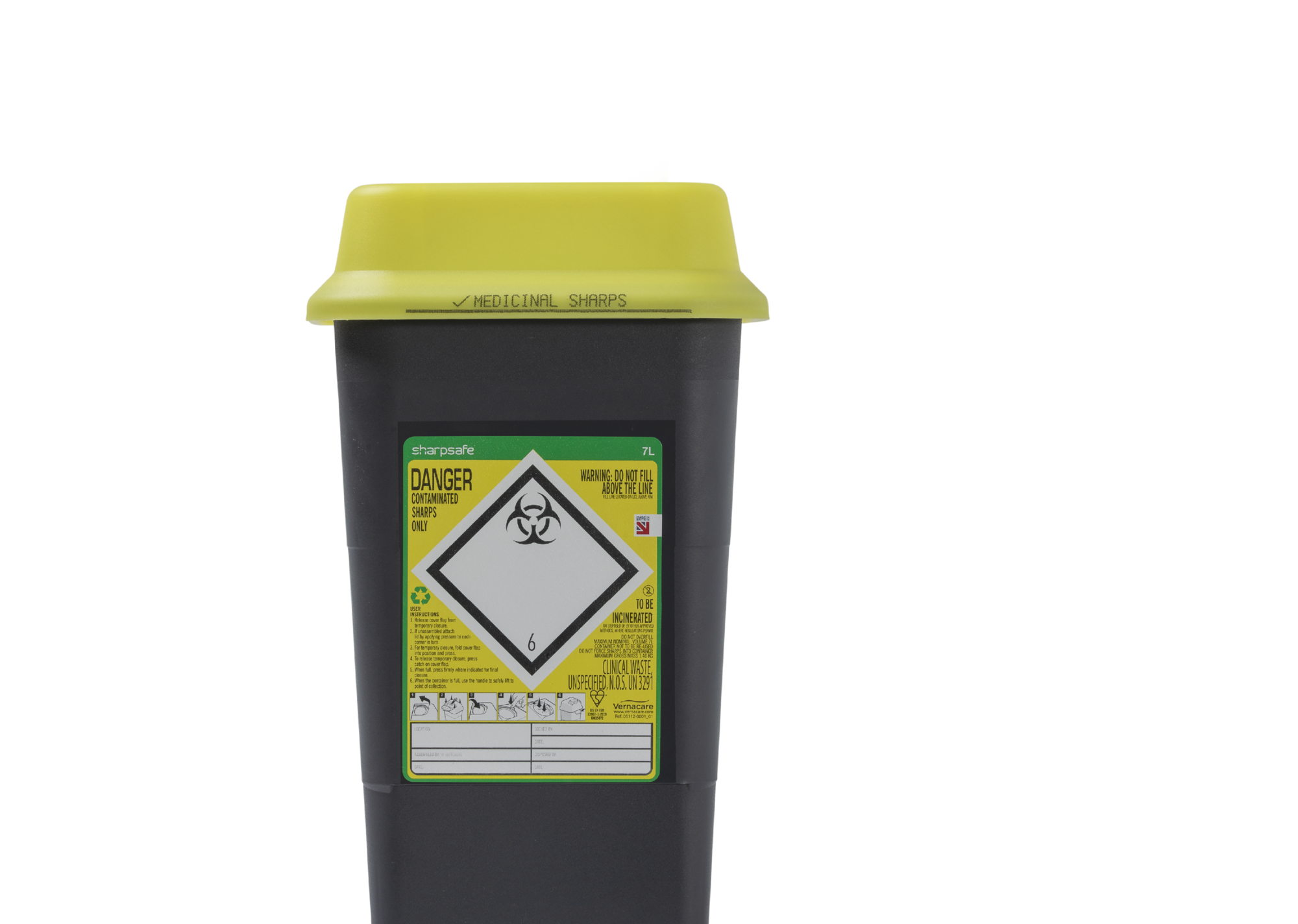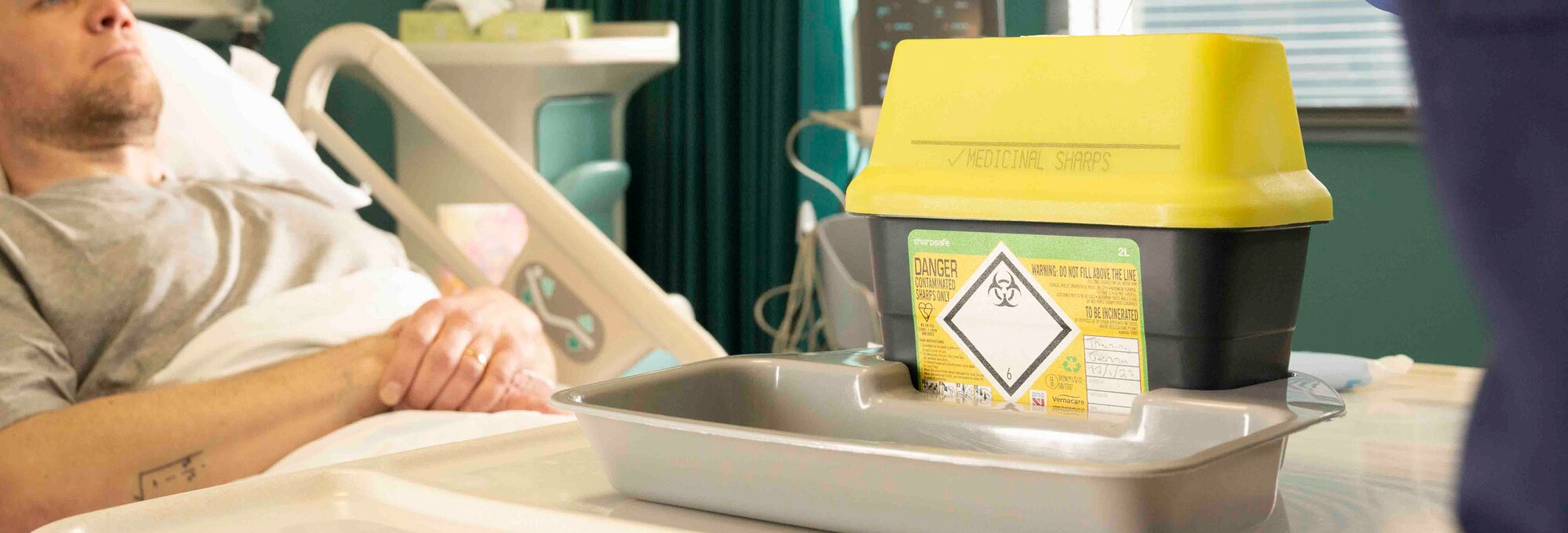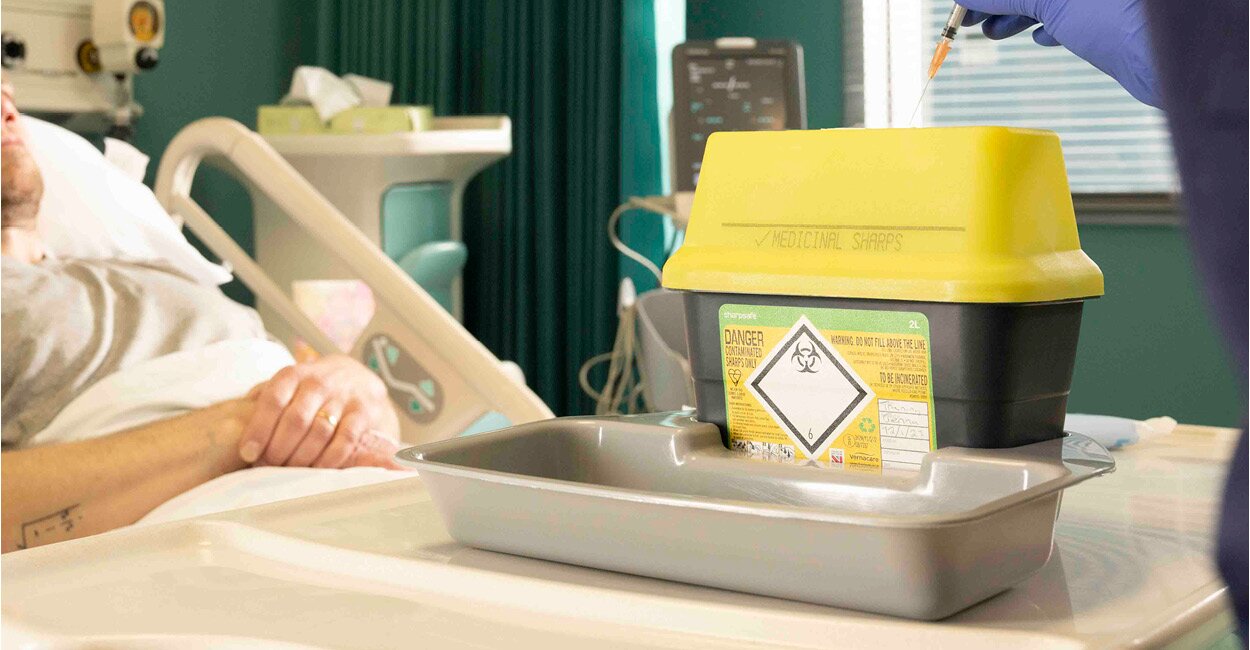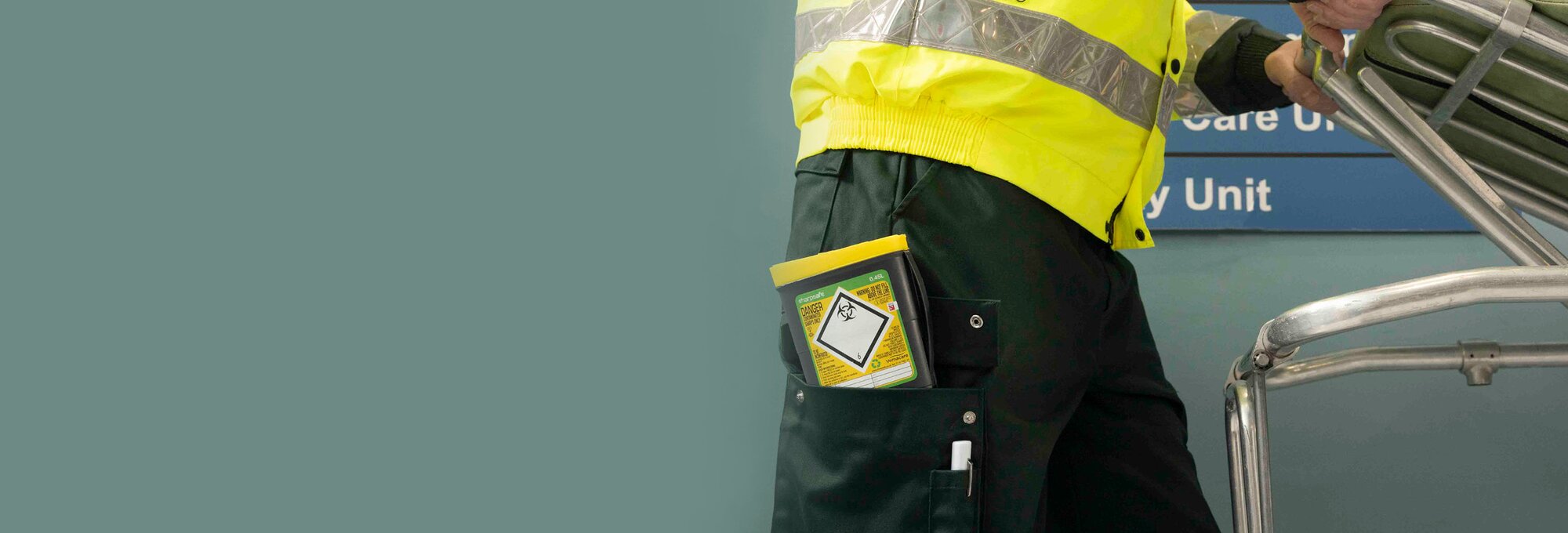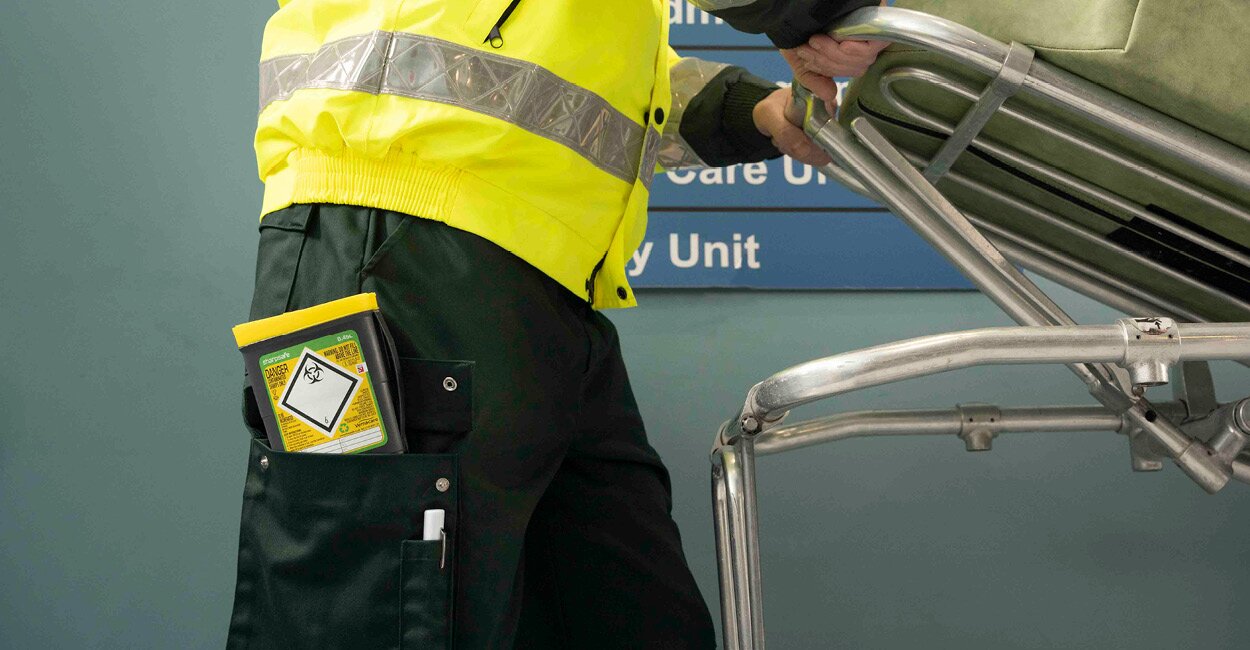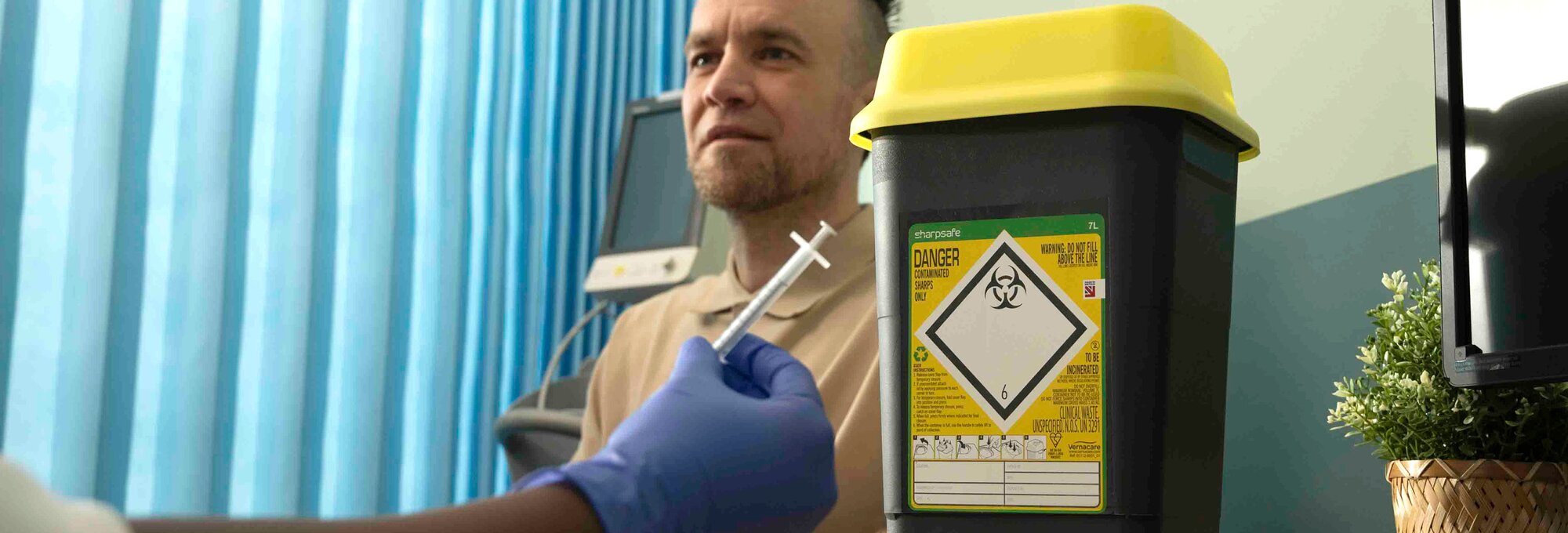
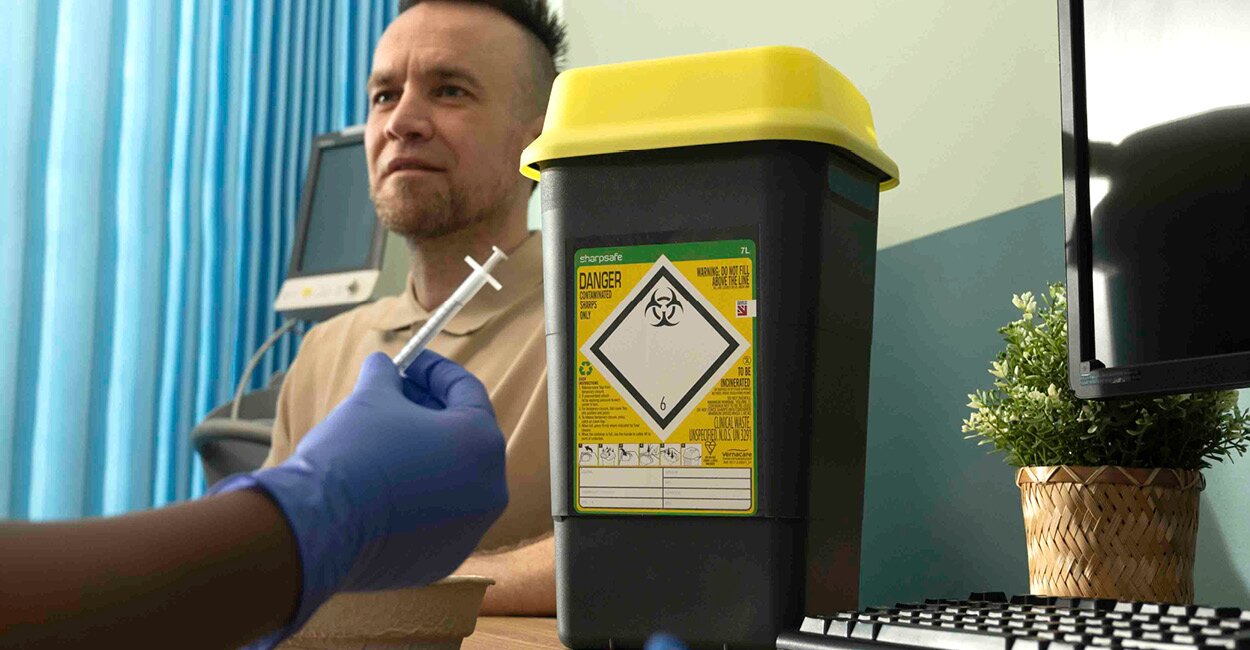
Leading the way in safe and sustainable clinical waste management solutions, providing systems for the secure disposal of sharps and non-sharps.
We're passionate about clinical waste and understand that clinical waste management is a critical aspect of healthcare operations that requires careful handling, segregation, and proper disposal to protect public health and the environment.
Over 40 year's ago, we pioneered the first purpose-built sharps container, and we continue to innovate with the world's first full range of sustainable, single-use waste containers.
Leading Brands

Clinical waste containers specifically designed for the safe disposal of non-sharps waste.
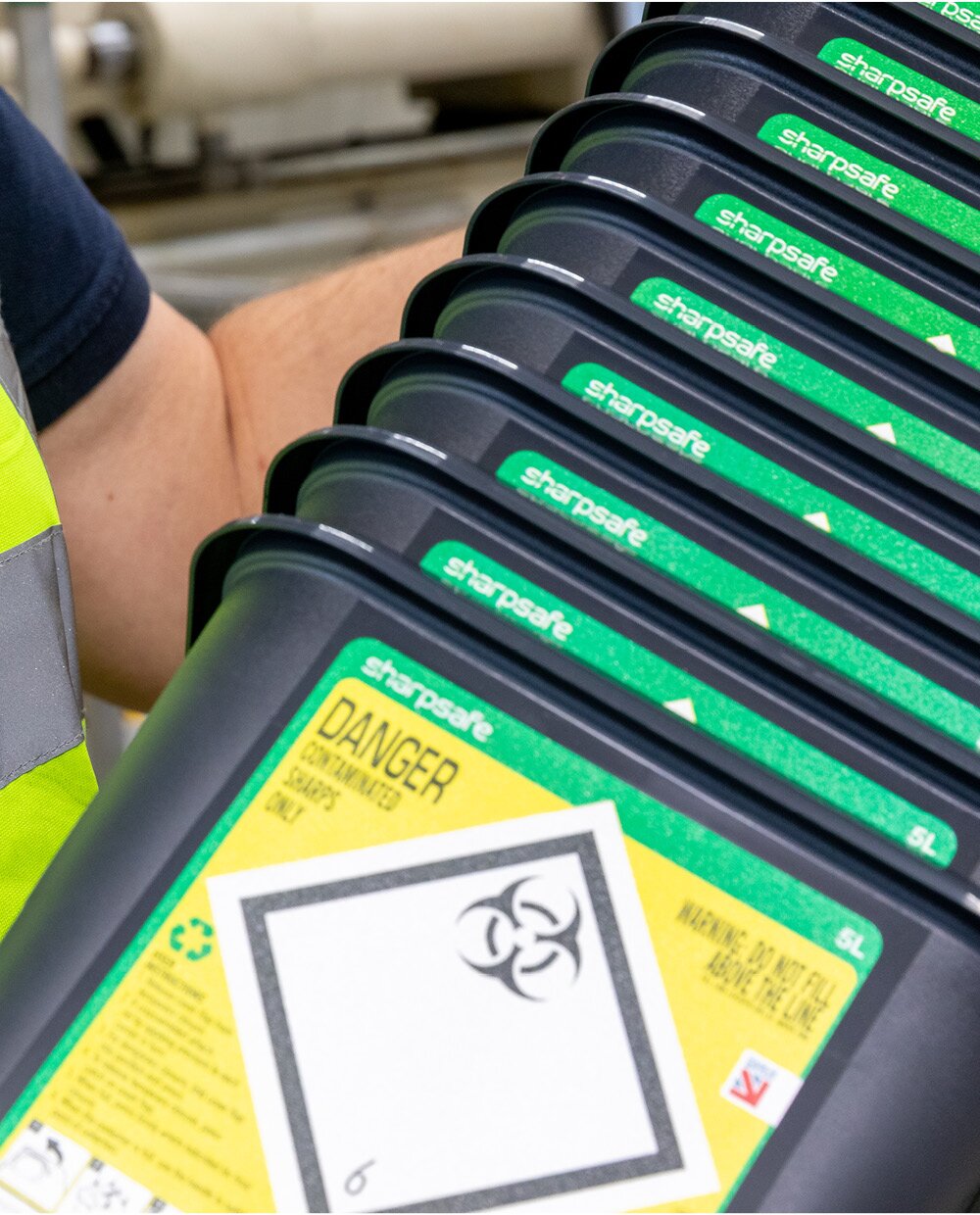
NEW: 5 & 7 Litre Sharps Containers Now Available
Perfectly designed to suit GPs, Dentists and A&E, our new 5 & 7 Litre containers promote safety and sustainability.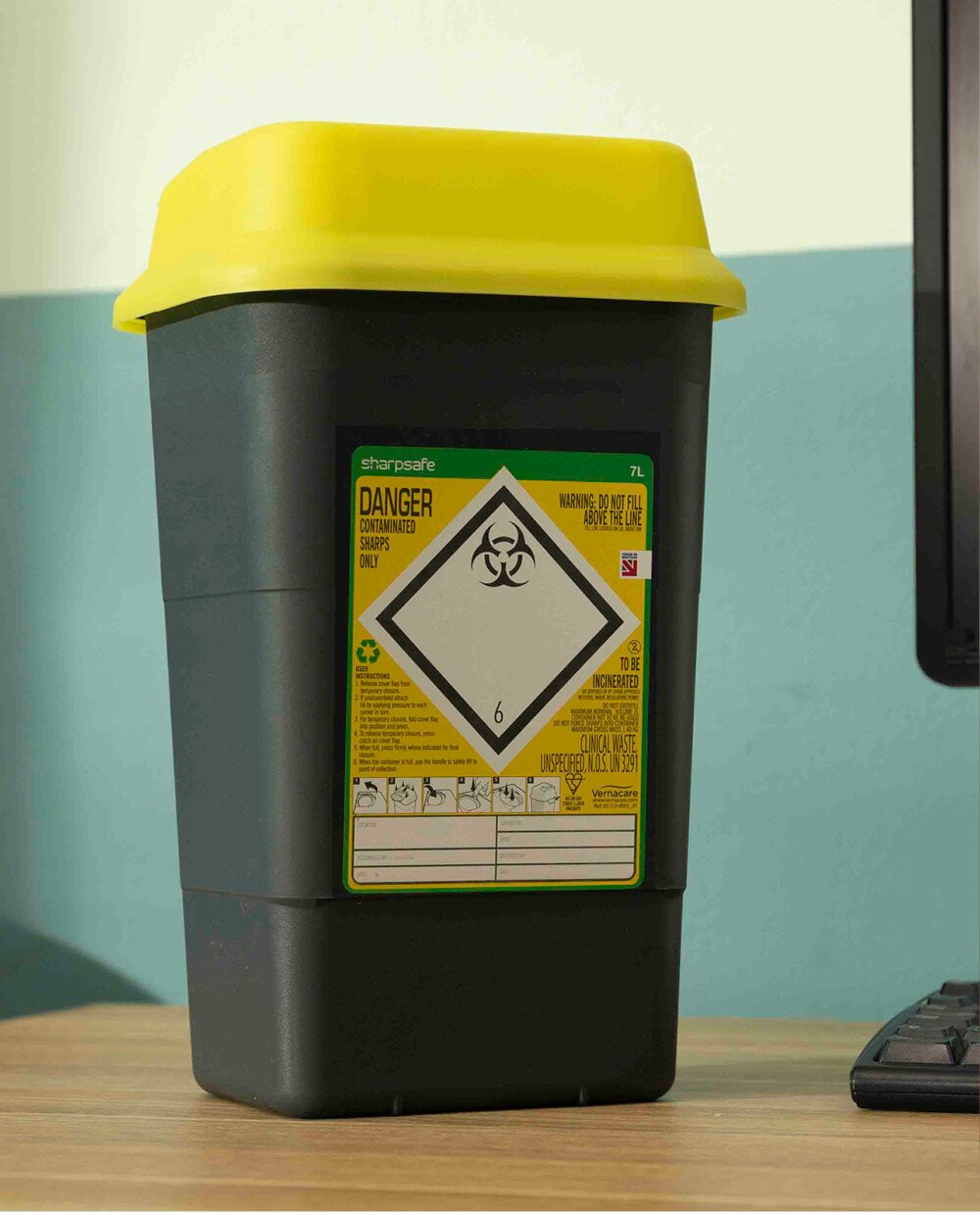
How much carbon could you save by switching?
Utilise our new Sharpsafe® carbon calculator to work out how much you could save by switching to the new 5 & 7 Litre
Waste Segregation and Training Posters Available Now
We have a full range of waste segregation and training posters available for you to download today.We are sustainable but not at the compromise of safety.
We hold significant importance on regulatory and compliance. Our clinical waste management portfolio adheres to the below standards.
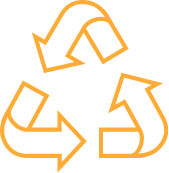
Up to 100% recycled material in the base of our containers
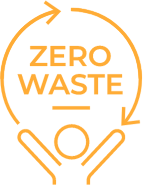
Zero manufacturing waste to landfill, utilising high-grade reprocessed material, efficient use of energy and natural resources

Reducing our C02 emissions through solar panels at our manufacturing site
Our Sharpsafe® and Clinisafe® containers adhere to:
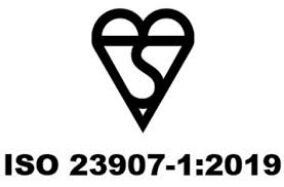

ISO 23907-1:2019
This is an international standard specifically aimed at ensuring your safety. The key aspects covered are puncture resistance, drop resistance, seal tightness and labelling.
UN3291
A specific United Nations (UN) code used to ensure that infectious substances and clinical waste are transported safely and in compliance with international standards.
Read our article on Safer, Greener sharps management, published in the Health Estates Journal
Contact Us Today about our Clinical Waste Management solution
Speak to our expert team to find out how we can offer the optimal solution for your clinical waste management needs.
Get In Touch